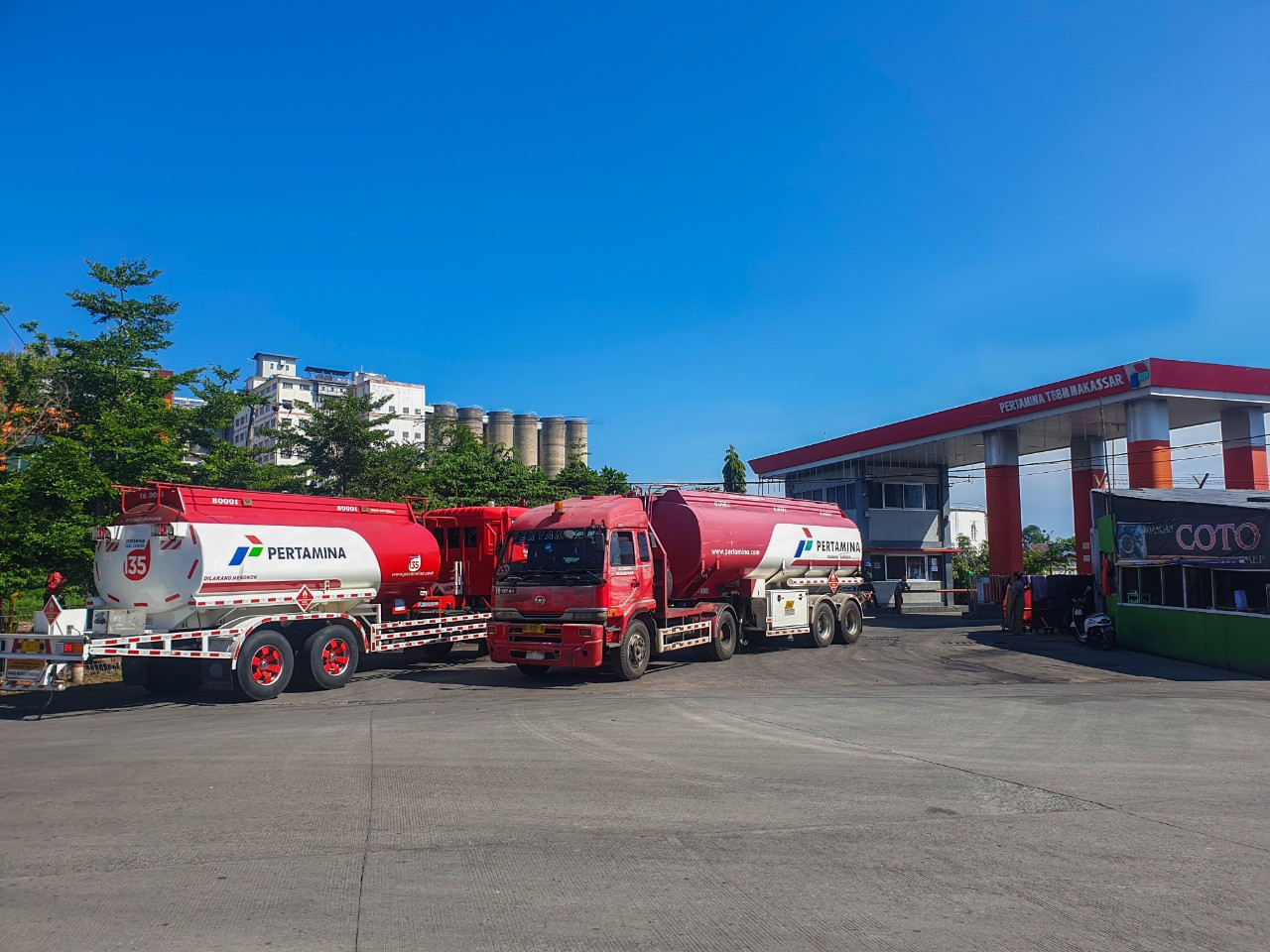Popular Reads
Top Results
Can't find what you're looking for?
View all search resultsPopular Reads
Top Results
Can't find what you're looking for?
View all search resultsThe politics of fuel reform
Because we depend on imported fuel for more than 60 percent of our needs, Jokowi should demonstrate the political courage to reduce wasteful subsidy spending by implementing a more well-targeted subsidy.
Change text size
Gift Premium Articles
to Anyone
T
he steep rise in international oil prices to twice as high as the US$63 per barrel average price assumed for fixing domestic fuel prices and energy subsidies this year is adversely affecting the fiscal management, causing general price increases and consequently increasing the costs of living.
But the government should fully realize that the current global energy insecurity and volatility is not a temporary phenomenon caused by an imbalance in the demand-supply equation that can be solved by boosting production increases in major producing countries.
The supply disruption, which has doubled oil and gas prices over the past few weeks, may last longer than the conventional market instability because the latest market turmoil was caused by the geopolitical conflicts after the Russian invasion of Ukraine.
Therefore, in addressing the skyrocketing price of oil, the government should not take the “business as usual” approach of simply increasing the fuel subsidy, hoping that prices would eventually fall again within a few months.
If President Joko “Jokowi” Widodo is truly sincere about his recent statement that he is not interested in extending his second (last) term as proposed by several major parties, he is politically well-positioned to introduce bold — though painful — energy-subsidy reform. He does not face any political pressure to take populist measures that can harm the long-term good of the economy. He is not torn between the wish to reform energy to its economic costs and the desire to remain in power.
Because we depend on imported fuel for more than 60 percent of our needs, Jokowi should demonstrate the political courage to reduce wasteful subsidy spending by implementing a more well-targeted subsidy, focusing on automotive diesel oil, which affects transportation costs, as well as kerosene and 3-kilogram liquefied petroleum gas (LPG) cylinders for low-income consumers.
The President should stop the supply of the low-octane fuel called “premium” gasoline and peg the subsidy for the higher octane Pertalite (RON90), which now accounts for over 70 percent of gasoline consumption to a floating international price mechanism tied to fixed ceiling prices.
Under this regimen, the fuel subsidy will not fluctuate freely along with oil market prices or the rupiah exchange rate because the government still sets the price ceiling. The problem is, nobody can accurately predict the direction of oil prices, which are influenced by so many economic and political factors.
Without bold reform, the energy subsidy — set at Rp 134 trillion (US$9.5 billion) this year — could explode the fiscal deficit to over the 4.85 percent of gross domestic product (GDP) target. Paradoxically, subsidies act against energy security and sustainable economic development by encouraging overconsumption, which in turn increases imports of fossil fuels. A higher deficit may damage the credibility of fiscal management because the ceiling budget deficit should legally be restored to a maximum of 3 percent starting next year.
The current energy turmoil should strongly remind the government of the vital importance of accelerating the transition to domestic renewable energy such as solar, geothermal, hydro and wind power, which are abundantly available in the country and are not influenced by the globally-traded fossil fuel market.











